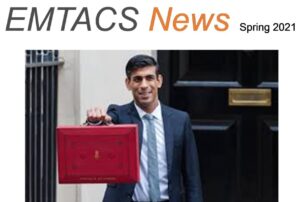February 2024
Having passed the filing deadline for 2022/23, the 2023/24 Tax Year now comes to the forefront of our minds and with that the implementation of the tax basis period reform. What does this mean? Well, I will do my best to explain. The only people who will be affected by this are those who currently have your annual accounts drawn up to a date different to 31 March or 5 April. For those individuals, the 2023/24 Tax Year is a transitional year whereby you will not only be taxed on your profits for the year to your usual Year End, but also on an extra period up to 31 March/5 April 2024 (we will most likely run everyone to 31 March as the end of the month is a cleaner break than 5 April). This extra period will work in the same way as any other set of Accounts. Your turnover less allowable expenses will be taken in to account to create a profit for the period. This is not the end however. Most, but not all, individuals with a non 31 March/5 April accounting date will have what are called Overlap Profits and these can be deducted, in full, to create what will be your transitional profit. This profit is then, by default under the legislation, split and spread over five years. This means the tax impact due to the basis period reform is spread to help with cash flow purposes.
If however an individual wishes to accelerate the charge and declare more transitional profits in a specific tax year, in order to utilise tax free allowances or lower rate bands, an election can be made. This would reduce the remaining profit left to declare and in turn reduce the minimum amount needing to be declared in each of the years left of the 5 year period. As you can imagine, the best way to do things will differ from person to person. Do not worry though as we will of course look at this for you and before finalising anything, chat things through to determine, as best as possible, what is the best course of action. What happens if you have a loss in a period? If your profit for the extra period less your overlap profits result in a loss (or Nil), spreading will not be possible. This is because these losses will be deducted from your profits for the normal Accounting Year, thus reducing the taxable profit being declared in 2023/24 and in turn your tax liability for the year. If a loss is made in the full year however and a profit in the transitional part year, the same rules apply as above, but this would most likely be a time where an election to declare a larger proportion may make sense. Based on the above, when sending in your next set of information, please can we ask all clients with an Accounting Year End different to 31 March or 5 April to send in two separate lots of Accounts, one for your usual year to your current Accounting Year End and a second to 31 March 2024, covering the extra period. Please do keep both these periods separate as that will help save time when completing your accounts. Once 2023/24 has been completed, your Accounting Year End going forward will run to 31 March each year.
April 2023
A little while since this has had an update.
The below details have now been updated for the 2023/24 Tax Year and we will add any future important information that we think would be useful to share.
CRYPTO-CURRENCY
Firstly, as I’m sure most of you are already aware, Crypto currencies are becoming more popular as a way to invest. We have started to see this being reflected on the bank statements of a number of our clients and HMRC have now clarified their initial stance on investments of this kind and how they are to be dealt with for Tax purposes.
For now, and this is subject to change over the coming years, Crypto investments are to be dealt with under Capital Gains rules in the same way as stocks and shares. This means that any gains over £6,000 must be declared on your Tax Return – this also applies if you’ve had sale proceeds of over £24,000 in the tax year or have made a Capital loss on which no Capital Gains tax is payable. However, if your proceeds from sales amount to gains over and above the annual threshold, Capital Gains Tax of 10% (basic rate band) or 20% (higher rate band) will be due on the gains over £6,000.
If we have spotted transactions from Coinbase or other sites going through your bank statements, we may have already been in touch regarding this but what we are asking is that anyone who either has been or is currently involved in Crypto Currency in any form contacts us to make us aware. We will then let you know in more detail what we require in order to meet requirements on your Tax Return and/or if any of your recent Tax Returns need amending.
Likewise, investment in precious metals such as Gold are also treated in the same way and so again, please let us know should you have invested in this area. The whole area remains a bit messy because at a certain point, this way of investing becomes a business rather than buying and selling stuff to make a Capital Gain. So far there is no real guidance on this, mainly because it’s very difficult to say that if you have a hundred transactions (say) it’s a business. That is an attitude of mind rather than a fixed number of transactions.
As with recent years, our Tax Return Information Form will be emailed out to clients. If you would like a paper copy, please let us know and we will get one posted out to you. Alternatively, go to the ‘Deadlines, Links & Forms’ page where you can download one in either word or pdf format.
Newsletters
Click on images below to download newsletters






